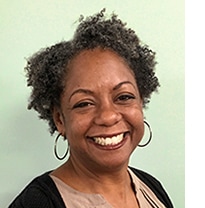
THE CONVERSATION
A child’s disclosure of sexual abuse or rape can be difficult to hear. If you’re presented with this information, you may be experiencing some powerful emotions – and that’s OK. We’re here for you, and you are not alone.
When it comes to approaching your child, it’s very important that you keep calm and composed. An emotionally intense reaction from a parent can be more startling than the disclosure itself.
"When talking with your teen, first take a moment to stop and breathe. Creating a calm environment will help your child feel safe."
If you need to initiate the conversation, ask in an understanding tone. “I understand something may have happened to you. Do you want to talk about it?” Let your child lead the conversation. Be attentive and don’t press for details. Listen without judgement. Accept if they don’t want to talk and let them know you are there to listen when they are ready.
It’s common for survivors to experience a great deal of shame because they fear they did something wrong. Teens especially might think, “My mom told me I shouldn’t have a boyfriend and now look what happened.” or “My dad told me I shouldn’t talk to people online and now look what happened.” This is a crucial time to reiterate your love and support for your child.
"What they need to hear now is that you believe them, it wasn’t their fault, and you’re there for them."
You can learn about our services, request an appointment online, or call (216) 619-6192 to discuss your options. If you decide to reach out to Cleveland Rape Crisis Center for support, communicate this to your child. It is important that your teen feels involved and empowered by the choices being made.
AFTERWARDS
It may take a couple of days or weeks to get in to see a counselor, so you may be wondering what to do in the meantime. As with that initial conversation, it’s important to be present with your teen and do your best to maintain a calm atmosphere at home. Many survivors fear that their experience will disrupt their family. Work together to develop a new sense of normalcy in the home.
It’s helpful to give your teen the opportunity to focus on something other than their trauma. Schedule some fun one-on-one time. Watch a funny movie together. Paint your nails. Make their favorite meal.
Familiarizing yourself with the symptoms of Post Traumatic Stress Disorder (PTSD) can help you understand what your teen is experiencing. Visit the National Center for PTSD for additional resources.
Things to keep in mind:
- In an assault, control is taken away from the survivor. Do what you can to help your child regain a sense of control in their life. Your instinct may be to go into protection mode, but remember to balance that with giving your child choices. If you’re the first to help them regain personal empowerment, they will continue to turn to you for help.
- If your teen doesn’t want to talk about what happened, especially after counseling services have been established, don’t force those conversations.
- Make sure that all the parent figures who care for your child are working together. Being on the “same team” will help create stability for your child.
REMEMBER YOUR OWN NEEDS
Taking care of yourself is a big part of taking care of your child. You can access specialized parent support through Cleveland Rape Crisis Center, even if your child decides not to pursue counseling services. Call (216) 619-6192 to learn more.
"Are you struggling to tend to your needs? Think about how you’ve cared for yourself in the past and make an effort to integrate those activities back into your daily or weekly routine."
Keep these self-care tips in mind:
- Get enough sleep.
- Sustain healthy eating habits.
- Exercise regularly.
- Do something you enjoy (alone or with your child.)
- Practice deep breathing.
- If you find yourself struggling, shifting yourself physically (stepping outside, taking a hot shower, etc.) can help shift your thoughts.
Always remember that healing is possible and you are not alone.
Printable resource: Your Teen Disclosed, What Now?.

